Need for police reforms
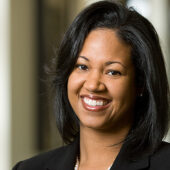 Jurors recently convicted five police officers accused of civil rights violations and obstruction of justice in New Orleans. Law professor Kami Simmons writes in the Huffington Post that the situation exposed institutional deficiencies that encourage police misconduct and corruption.
Jurors recently convicted five police officers accused of civil rights violations and obstruction of justice in New Orleans. Law professor Kami Simmons writes in the Huffington Post that the situation exposed institutional deficiencies that encourage police misconduct and corruption.Categories: Research & Discovery, University Announcements

 For one species of seabird in the Galápagos, the child abuse “cycle of violence” found in humans plays out in the wild. The new study of Nazca boobies by Wake Forest researchers provides the first evidence from the animal world showing those who are abused when they are young often grow up to be abusers.
For one species of seabird in the Galápagos, the child abuse “cycle of violence” found in humans plays out in the wild. The new study of Nazca boobies by Wake Forest researchers provides the first evidence from the animal world showing those who are abused when they are young often grow up to be abusers.  Wake Forest student William Murphy (’13) and Associate Professor of Communication John Llewellyn recently discovered that the most significant American speech in recent history was based on a teenage dream – one Dr. Martin Luther King, Jr. first envisioned and articulated as a 15-year-old schoolboy in the Jim Crow South.
Wake Forest student William Murphy (’13) and Associate Professor of Communication John Llewellyn recently discovered that the most significant American speech in recent history was based on a teenage dream – one Dr. Martin Luther King, Jr. first envisioned and articulated as a 15-year-old schoolboy in the Jim Crow South.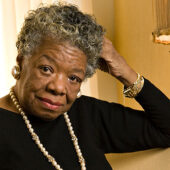 Directed by Maya Angelou, a Presidential Medal of Freedom honoree, twelve students recently shared 44 poems in a dramatic performance at Brendle Recital Hall. The poems were selected as favorites from their summer course with Angelou. (includes video)
Directed by Maya Angelou, a Presidential Medal of Freedom honoree, twelve students recently shared 44 poems in a dramatic performance at Brendle Recital Hall. The poems were selected as favorites from their summer course with Angelou. (includes video)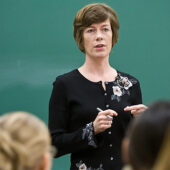 If only we could blame drought and poverty for the famine in the Horn of Africa that would be so simple, says Sarah Lischer, associate professor of political science who studies humanitarian aid and refugees in Africa. In the Huffington Post, Lischer explains why Western aid won’t save Somalia.
If only we could blame drought and poverty for the famine in the Horn of Africa that would be so simple, says Sarah Lischer, associate professor of political science who studies humanitarian aid and refugees in Africa. In the Huffington Post, Lischer explains why Western aid won’t save Somalia. If intelligence agencies could have accurately predicted the events of 9/11, imagine how world history would have changed. Eric Stone, an associate professor of psychology, is working on a crowdsourcing project to find ways to help experts make more accurate predictions. Read media coverage of the project and find out how you can participate.
If intelligence agencies could have accurately predicted the events of 9/11, imagine how world history would have changed. Eric Stone, an associate professor of psychology, is working on a crowdsourcing project to find ways to help experts make more accurate predictions. Read media coverage of the project and find out how you can participate.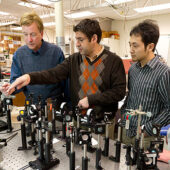 Using a crystal ball to protect homeland security might seem far-fetched, but researchers at Wake Forest University and Fisk University have partnered to develop crystals that can be used to detect nuclear threats, radioactive material or chemical bombs more accurately and affordably.
Using a crystal ball to protect homeland security might seem far-fetched, but researchers at Wake Forest University and Fisk University have partnered to develop crystals that can be used to detect nuclear threats, radioactive material or chemical bombs more accurately and affordably.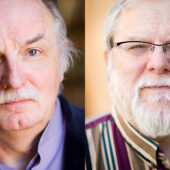 With an esteemed group of faculty, Wake Forest often is a source for the media on important news topics. Recently, professors David Coates and John Llewellyn spoke with the media about the U.S. debt ceiling debate.
With an esteemed group of faculty, Wake Forest often is a source for the media on important news topics. Recently, professors David Coates and John Llewellyn spoke with the media about the U.S. debt ceiling debate.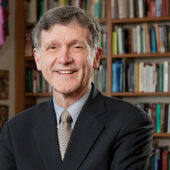 Mention religion and some people become armchair preachers who pepper their conversations with popular Christian words and trendy theological phrases. Bill Leonard, professor of church history at the School of Divinity, discusses "speaking Christian" with CNN.
Mention religion and some people become armchair preachers who pepper their conversations with popular Christian words and trendy theological phrases. Bill Leonard, professor of church history at the School of Divinity, discusses "speaking Christian" with CNN. New research shows baby boomers are not getting enough exercise. Professor Jack Rejeski says it takes physical activity, not just dieting, to shed pounds, and that exercise is especially important as people start to age because dieting alone could cost them precious muscle in addition to fat. Read more in the San Francisco Chronicle.
New research shows baby boomers are not getting enough exercise. Professor Jack Rejeski says it takes physical activity, not just dieting, to shed pounds, and that exercise is especially important as people start to age because dieting alone could cost them precious muscle in addition to fat. Read more in the San Francisco Chronicle.